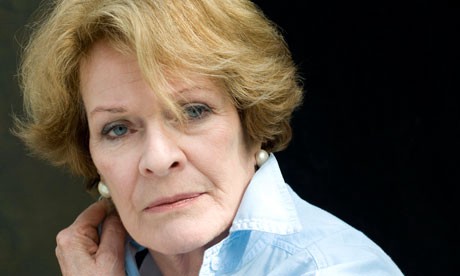A groundswell is brewing in London over the lack of roles for women on the London stage. It started due to the fact that a bunch of plays recently produced at the Hampstead Theatre, the Globe, the English National Opera, and Chariots of Fire in the West End have all-male or male dominated casts.
It’s striking how this situation in the UK theatre mirrors the issues related to women and film and theatre here in the US. Each day I become more and more convinced that these are global issues, and that while thing might be a little different here and there, there remains much difficulty for women to still acheive parity all through the arts.
Some people are sick of it and playwright Stella Duffy made a call for women (who buy 70% of theatre tickets) to use their dollars to seek out plays with more of a gender balance:
Theatre, as we learn in Hamlet, is supposed to offer a window on society and yet women are treated as though they are a minority. If we don’t tackle this, what hope is there for the female disabled actor, the black woman actor — they have been made a minority twice…We need, as women, to be more circumspect, to seek out plays with female roles — it is not easy, but it is worth doing.
“It is not easy, but is worth doing.” That is an important point. And one way to make a difference is to look for plays written by women because the statistics show that women writers create more roles for women.
But there still remains the problem of the fact that there are still too few women writing as playwright Zinnie Harris says:
A female Hamlet may balance the books a bit, and I’m not against it, but a role for women, created about a woman at the centre of a big play, is a really rare thing. The problem has to be partly to do with who is creating the roles.
There could be hope with the appointment of Vicky Featherstone who takes over the Royal Court Theatre in London as its first female artistic director. It’s not the smartest thing to put hope in one basket as it is difficult for one person to make significant enough change. There needs to be more women in leadership positions in order for more industry wide changes to be seen. But change moves slowly, and at least Ms. Featherstone is aware that things need to be done. She talks about there being a new generation of female playwrights including Lucy Prebble and Abi Morgan and she is aware that things need to change. Here’s her description of what’s wrong with British theatre.
Tired old programming of old British plays is becoming more and more redundant. It is through new plays that we can represent the world we actually live in.
Pushing the point is actress and director Janet Suzman who at 73 says she is ready for a “Learlike” role but those roles do not exist for women. She says:
Theatre is unequal, because the world is. The problem will remain unsolved, she says, until “a load of geniuses come in and say ‘I can write an autonomous woman who isn’t someone’s auntie, mother or lover; who is truly a free spirit’” — an equivalent of Hamlet rather than Ibsen’s Hedda Gabler, with her “landscape of internal rottenness that she can’t escape”.
There is still so uch work to be done. Maybe, just maybe if we have more women writing plays and if we as women support those playwrights in the next generation there will be “Learlike” roles for actresses like Janet Suzman when they are ready to play them.
Actors’ union rallies theatres to create more parts for women (The Guardian)






